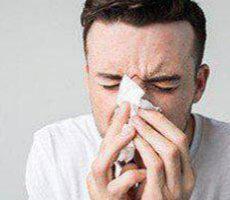What causes allergies?
Allergies begin when your immune system labels a harmless substance as a danger to your body. Then every time you encounter that substance in the future, the immune system releases chemicals that cause an allergic reaction.
A few examples of the most common allergens include:
- Airborne allergens: pollen (trees, grasses, and ragweed), dust mites, and mold
- Contact allergens: poison ivy, soap, latex, nickel
- Insect stings: bees, wasps, hornets, and fire ants
- Medications: penicillin, aspirin, ibuprofen
- Food: peanuts, tree nuts, eggs, milk, shellfish, wheat, soy, fish
Many of these allergens are also closely associated with asthma. Airborne allergens and allergens responsible for skin and food allergies can all trigger allergic asthma. On the flip side, you have a higher risk of developing a food allergy if you have asthma or eczema.
What symptoms will I develop due to allergies?
The symptoms you develop are determined by the type of allergy. Allergic rhinitis (hay fever) and other airborne allergens tend to affect your eyes and nose. A skin allergy, such as atopic dermatitis (eczema) or allergic contact dermatitis, causes a rash.
The range of possible allergy symptoms includes:
- Runny or stuffy nose
- Sneezing
- Watery eyes
- Itchy nose, eyes, or mouth
- Skin rashes, hives, or eczema
- Fatigue
- Headache
- Abdominal pain, nausea, or diarrhea (food allergies)
Allergies to food, latex, and medications can also result in a life-threatening reaction called anaphylaxis, which causes shortness of breath, feeling faint, and loss of consciousness. Anaphylaxis is a medical emergency that requires an immediate injection of epinephrine.
How are allergies treated?
Dr. Tolston performs skin and patch tests to identify your specific allergens, then develops a treatment plan based on the type of allergy and the severity of your symptoms.
The first line of action for all types of allergies is to avoid your allergen. However, the only treatment currently available for a food allergy is to completely eliminate the offending food from your diet.
Other types of allergies may be treated with medications that target symptoms or with immunotherapy.
During immunotherapy, you receive injections that contain a small amount of allergen on a regular schedule. Every time you get another injection, the dose is slightly increased. Over time, your immune system develops tolerance to the substance and you stop having allergic reactions.
To get relief from your allergies, call Allergy Asthma and Immunology on Madison or book an appointment online.








